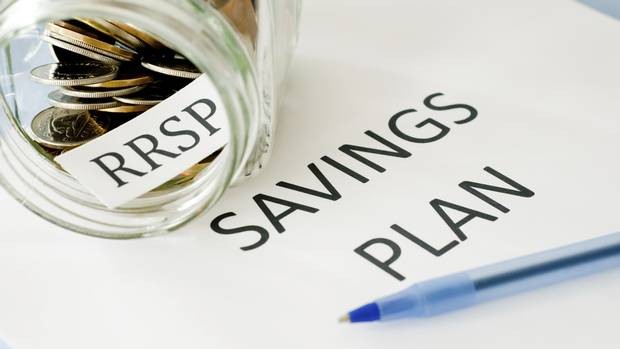Should you contribute to an RRSP or pay off the mortgage The Globe and Mail
Post on: 9 Октябрь, 2015 No Comment

The big push is on to convince Canadians to load their extra cash into registered retirement savings plan (RRSP) investments before the Mar. 3 deadline. But though it may seem as though contributing is the only option when it comes time to decide what to do with the money, it’s not.
281%29.JPG /%
Alan Gratias collects firewood for the hearths inside of his Loyalist home in Prince Edward County, Ontario Friday Feb. 1, 2013
The Globe and Mail
Retirement
That’s exactly what Rock Lefebvre, vice-president of research and standards for the Certified General Accountants Association of Canada, in Ottawa, did when he was younger. Rather than invest in stocks, bonds or mutual funds, he developed a financial strategy that meant paying off his mortgage early. To this day he still advises that most people eliminate consumer debt and then go on to tackle mortgage debt before investing.
“Some people might argue that’s not the most strategic approach, but my defence is that any unused RRSP contribution room can always be used in the future. It’s never lost,” he says.
For homeowners, it pays to ask a few questions before deciding how to use that money.
Q. What gets a better return?
Anyone looking at their mortgage today might be wondering, “Why make pre-payments? My mortgage rate is so low, it’s costing me next to nothing to borrow this money.” That’s the wrong way to look at it, says Cynthia Kett, a chartered professional accountant with Stewart & Kett Financial Advisors Inc. in Toronto.
“If you have a mortgage balance that will need to be renewed upon maturity, think about the interest savings based on the renewal rate, not the current rate,” she explains.
If mortgage rates climb to 5 per cent in the coming years – a definite possibility – and you’re in the 35-per-cent marginal tax bracket, paying off the mortgage faster means you’ll be getting a guaranteed pre-tax rate of return equivalent to 7.69 per cent, says Ms. Kett. (Extra mortgage payments reduce the principal amount so you’re actually saving not just future interest, but the tax on that interest because you pay the mortgage with after-tax dollars.) Not too shabby, especially since the rate is guaranteed.
Even if your RRSP investments make 9 per cent, a typical mutual fund charges fees, which could actually knock down the return by a couple of percentage points. Suddenly that return isn’t looking so good, nor is it a sure thing.
Q. What gives me the tax advantage?
RRSPs are a good option for people who are in a high tax bracket now and expect to be in a much lower one when they retire. But paying off a mortgage early has tax benefits, too.
“An RRSP is a tax deferral. It’s not actually free money,” Ms. Kett says. “You’re just paying it later instead of now, whereas the capital gains on your principal residence are going to be tax sheltered permanently.”
Q. Can I afford to take a risk?
Risk tolerance is going to be different for everyone. On one hand, a younger investor with a growing family or unsteady job prospects might think twice before investing in anything that even hints of risk. On the other, someone who has amassed some wealth and can afford to take a hit without going to the poorhouse, might decide to max out that RRSP. Risk tolerance often changes many times over a person’s lifetime.
“If you’re affluent and can afford to pay that investment game, that’s okay, but if you don’t have the money, you probably want to be more conservative and pay off your mortgage,” Mr. Lefebvre says.
Q. How much financial flexibility do I need?
Once funds are deposited in an RRSP investment, forget withdrawing them before retirement without incurring some expensive fees and fines. Indeed, RRSPs were created to be that way so investors would be less likely to dip into their long-term savings.
Paying off a mortgage, however, offers huge advantages in terms of financial flexibility, both today and tomorrow. Not only does it reduce your fixed monthly costs (leaving more money in the bank to pay for kids’ educations or vacations), but you can then dip into your home’s equity to borrow at preferred rates with a homeowner’s line of credit. Once that debt is paid off, you can borrow again.
Q. Does the idea of having a mortgage burning party make me deliriously happy?
If you answered yes, start making those pre-payments now. Becoming mortgage-free is an emotional relief for many Canadians – and offers more bang for the happiness buck than any bullish market.
“I can forgo a 9-per-cent return if I’m getting up this morning and I don’t owe anybody money,” Mr. Lefebvre says. “That’s much more liberating than knowing you made 5 per cent that you might be able to withdraw in 25 years.”
The bottom line? No matter which way you lean – mortgage or RRSP – you will almost certainly come out ahead in the long run compared with doing nothing to prepare for retirement.
“There’s not really a wrong answer,” Ms. Kett says. “Either option will improve your financial security and is better than leaving the cash in a bank account.”














